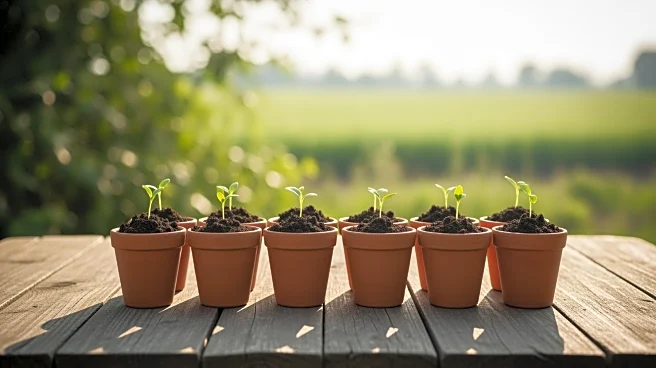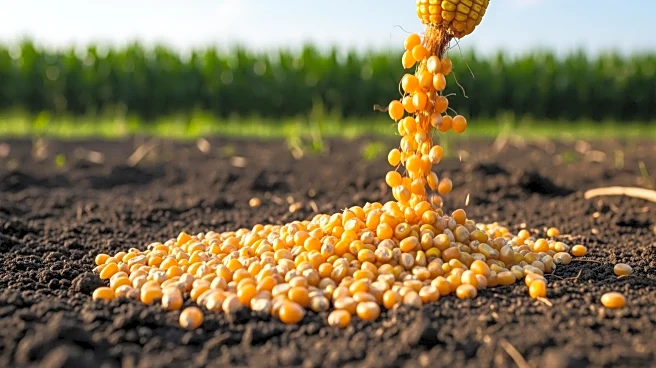What's Happening?
Governor Glenn Youngkin announced that $610,350 in grant money has been awarded to seven agriculture projects in Virginia through the federal Specialty Crop Block Grant Program. The program, established
by the Virginia Department of Agriculture and Consumer Services (VDACS), prioritizes projects that assist farmers in transitioning to specialty, high-value agricultural initiatives. Eligible participants include agricultural associations, industry and producer groups, localities, community-based organizations, educational institutions, and non-profits. The funded projects aim to enhance specialty crop research and competitiveness, increase net farm income, and develop pilot programs with potential transferability within rural Virginia. The projects cover a range of activities, including mitigating crop diseases, reducing insecticide applications, evaluating new crops, and optimizing fruit production.
Why It's Important?
The grant funding is significant as it supports Virginia's agriculture sector, which is crucial for the state's economy and food systems. By focusing on specialty crops, the program aims to open new market opportunities and support economic development. Specialty crops, such as fruits, vegetables, and horticulture products, are vital for diversifying agricultural production and increasing farm income. The projects funded by the grant are expected to advance research and innovation, helping Virginia producers remain competitive in the agricultural market. This initiative also aligns with broader efforts to promote sustainable agricultural practices and improve food security.
What's Next?
The funded projects will proceed with their respective research and development activities, aiming to achieve their outlined goals. Stakeholders, including farmers and agricultural organizations, will likely monitor the progress and outcomes of these projects to assess their impact on Virginia's agriculture sector. The success of these initiatives could lead to further investment and expansion of specialty crop production in the state. Additionally, the results may influence future policy decisions regarding agricultural funding and support for specialty crops.








